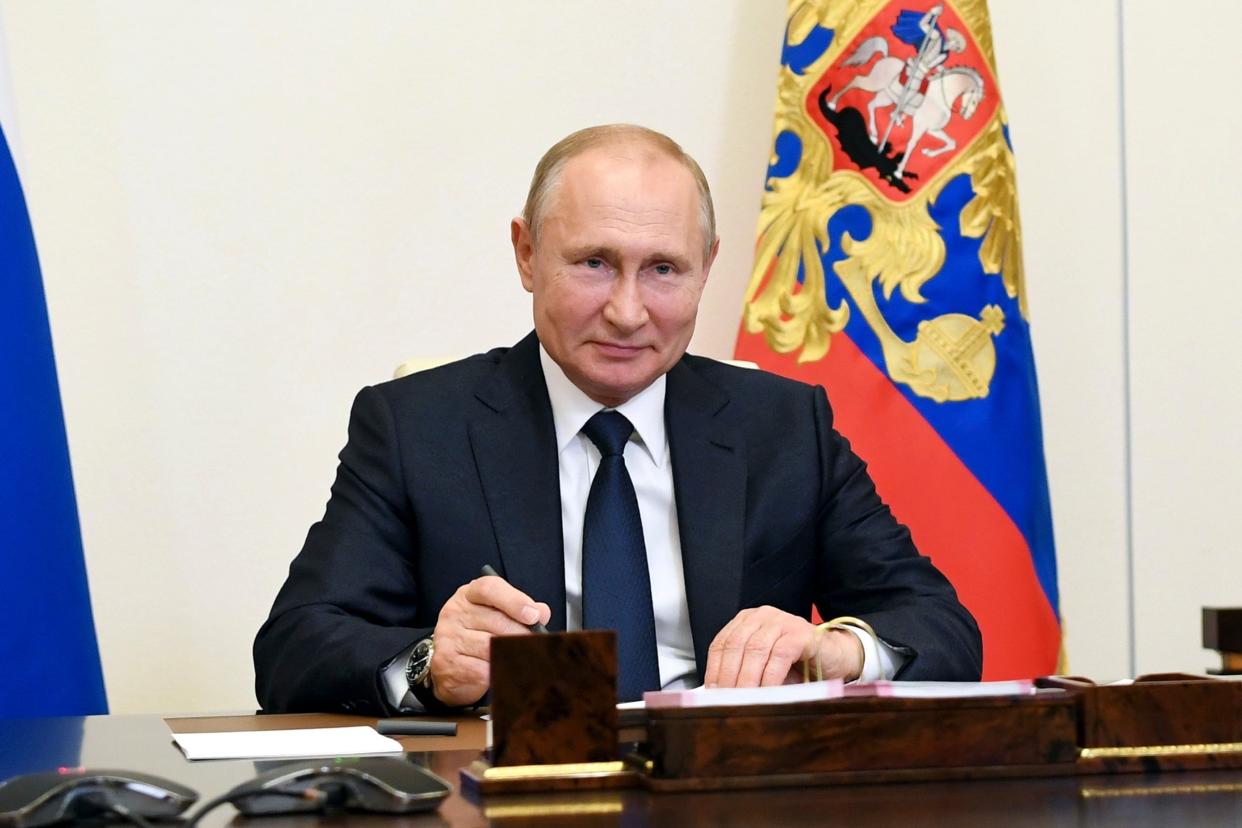Putin sets new date for constitutional vote that would hand him power until 2036

Vladimir Putin has announced a new date for a vote to change the constitution that would keep him in power for the foreseeable future.
In a painfully choreographed “working meeting” with legislators and officials, Mr Putin “agreed” to a suggestion to hold the ballot over seven days leading up to 1 July.
“Provided the plans do not interfere with exams, we can consider the date agreed,” the longtime leader told his audience.
Voting for the constitutional changes was originally scheduled for April 22, but was reluctantly postponed as the coronavirus epidemic took hold in Russia. The amendments once passed — this now seems a formality — will see Mr Putin allowed to run again despite exceeding constitutional term limits.
Anna Popova, head of Russia’s standards watchdog, told the president that the country was ready for a vote in four weeks time. A corner had been turned in the battle against coronavirus, she said, with daily caseload growth down to 2 per cent.
“The date of July 1 is important since it represents two periods of two weeks, two whole incubation periods,” she said.
According to the current Russian constitution, presidents are allowed to stay in power for a maximum of two successive terms. Mr Putin has already found a way around these regulations before. In 2008, for example, he anointed Dmitry Medvedev as president, while staying in effective charge as prime minister, before then switching four years later.
This time around, the 20-year president has kept things simpler by sanctioning a new constitutional arrangement that allows him to reset his presidential terms. The proposed changes offer a trouble-free route to staying in power until 2036.
By then, Mr Putin would be 83, eight years the senior of Leonid Brezhnev, the oldest Soviet leader at the time of his death.
Polls suggest Russians are yet to show real enthusiasm for the vote. Even before the coronavirus epidemic took hold in Russia, one survey suggested only a third had decided to vote. Nearly half believed the vote would not be fair.
Since then, the coronavirus epidemic has hit Mr Putin’s ratings severely, with enthusiasm for his leadership down to a 20-year low.
Elections chief Ella Pamfilova said the unprecedented proposal to hold an extended vote over seven days was a response to the epidemiological situation in Russia.
Plans were already in place for “contactless” voting, she said, with voters temperature tested and offered gloves, masks and disposable biros.
“Voting will be safer than shopping,” she added.
Read more
How coronavirus exposed the weakness of Putin’s power structure


